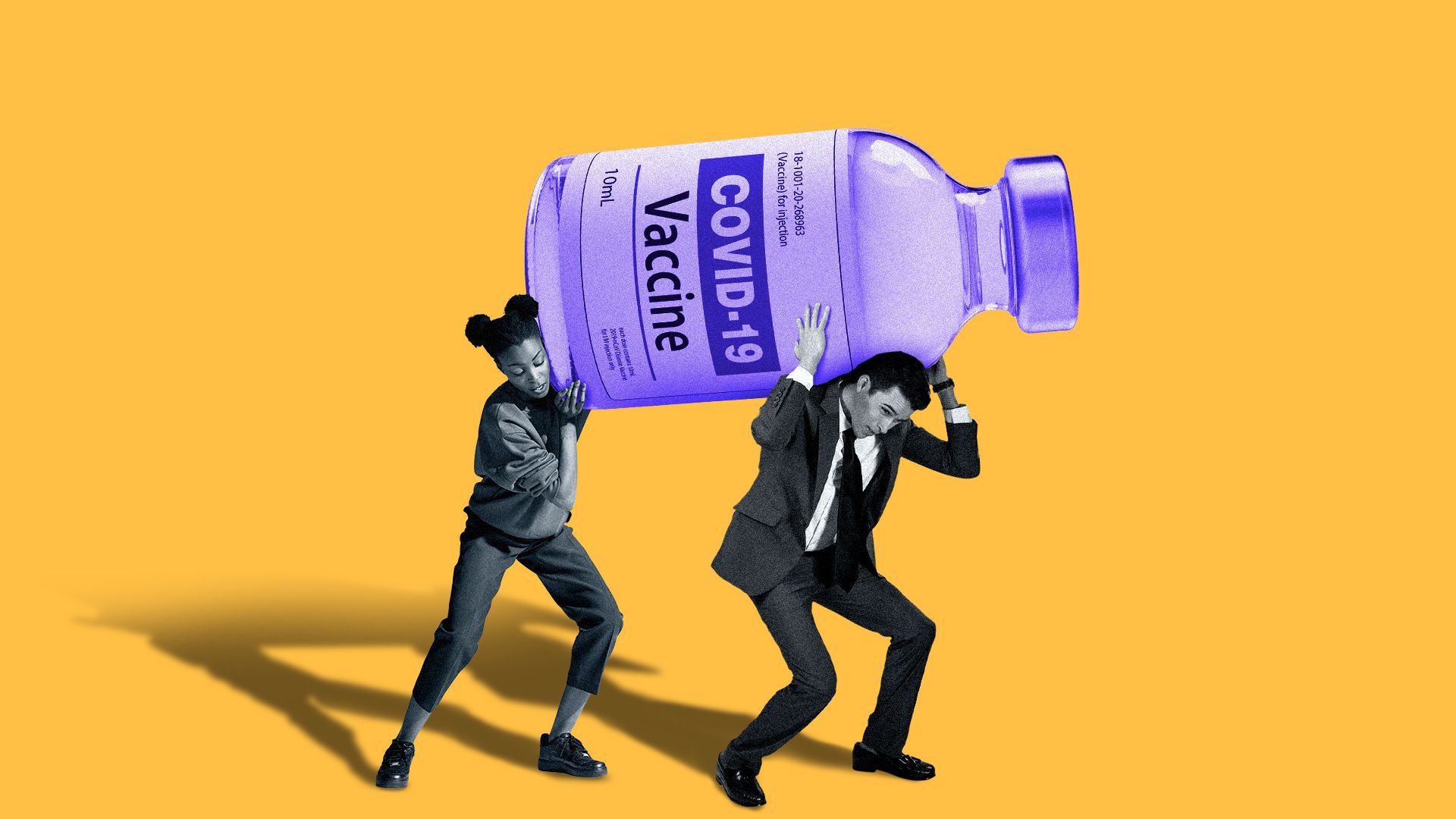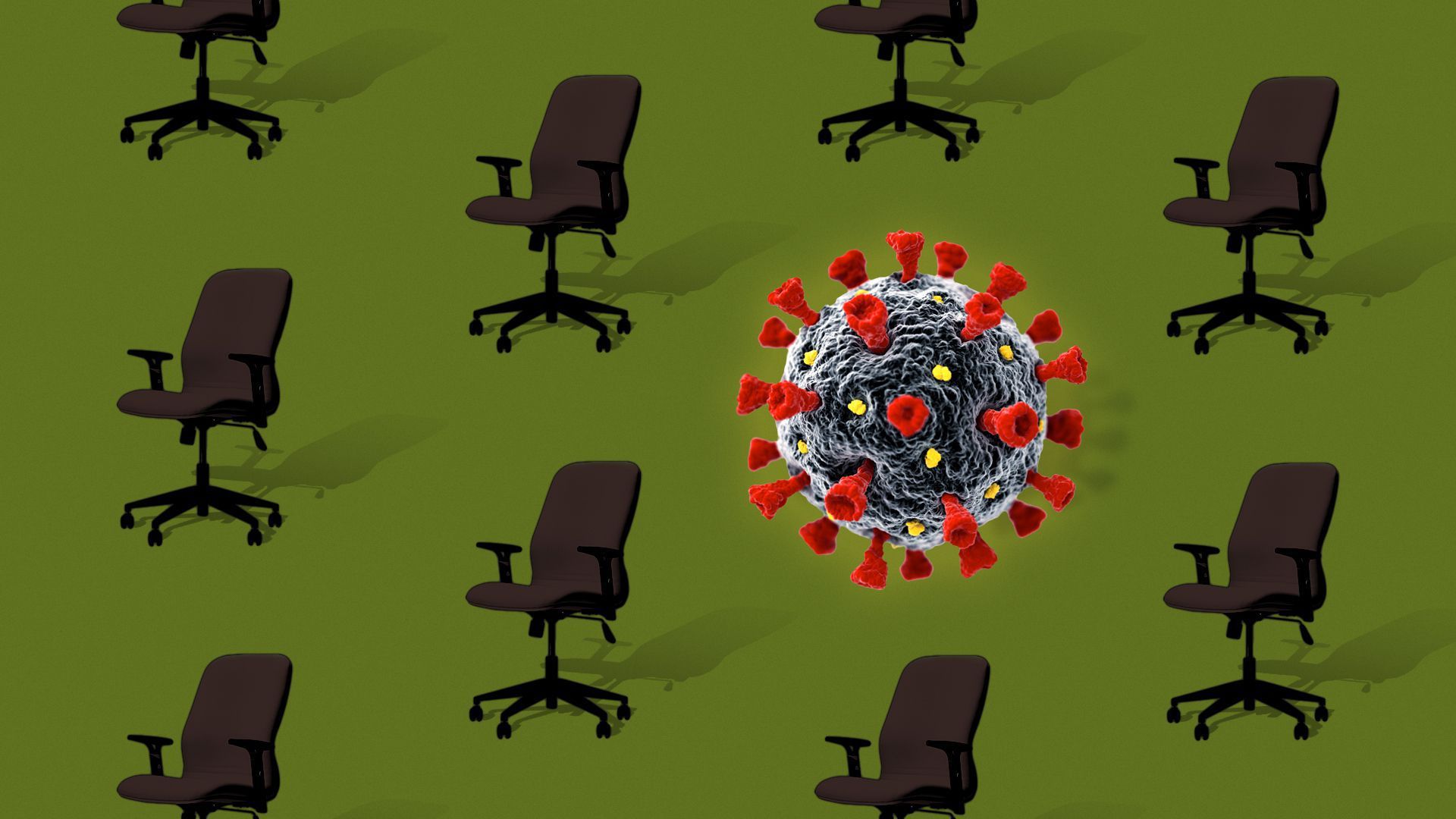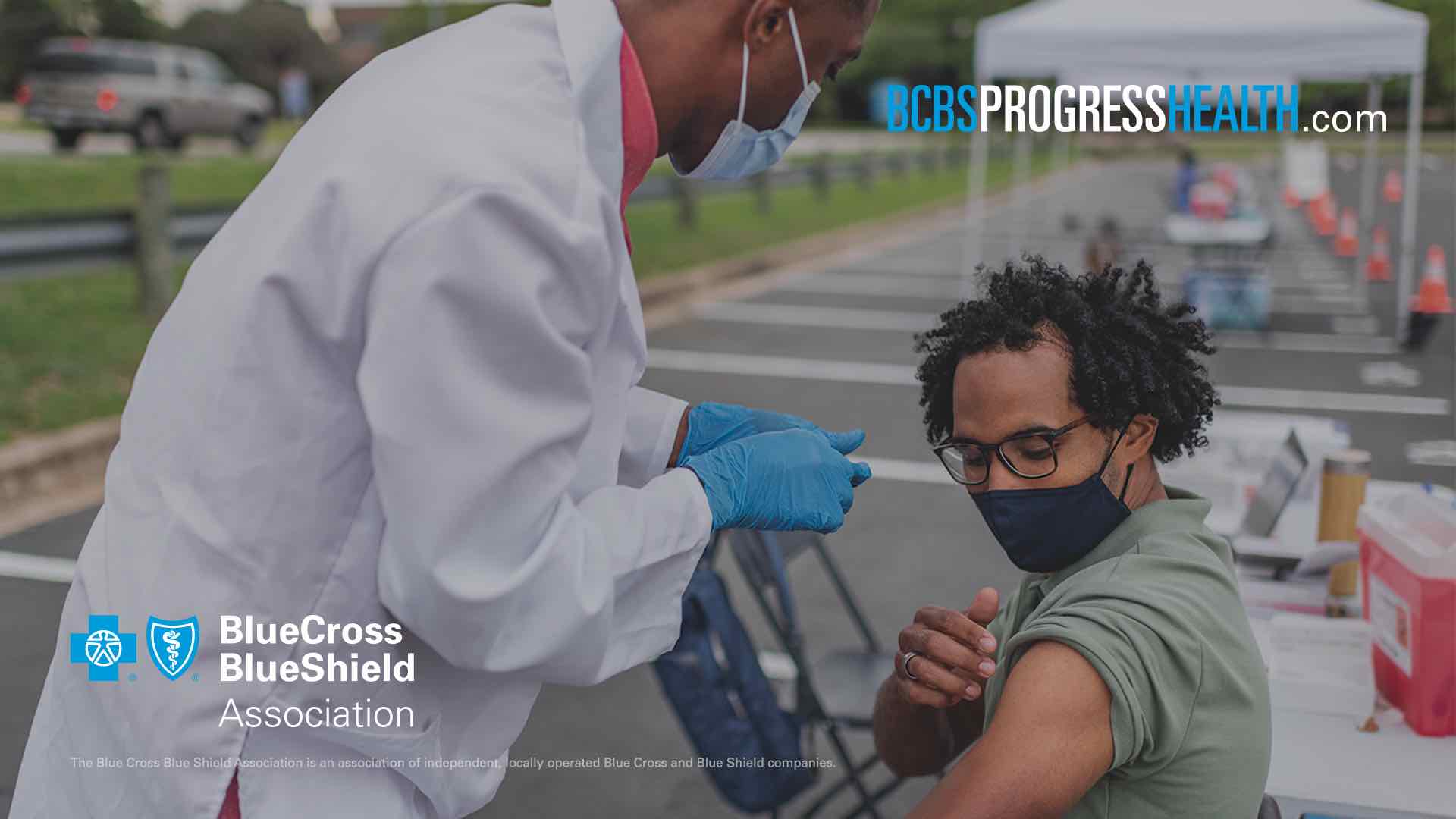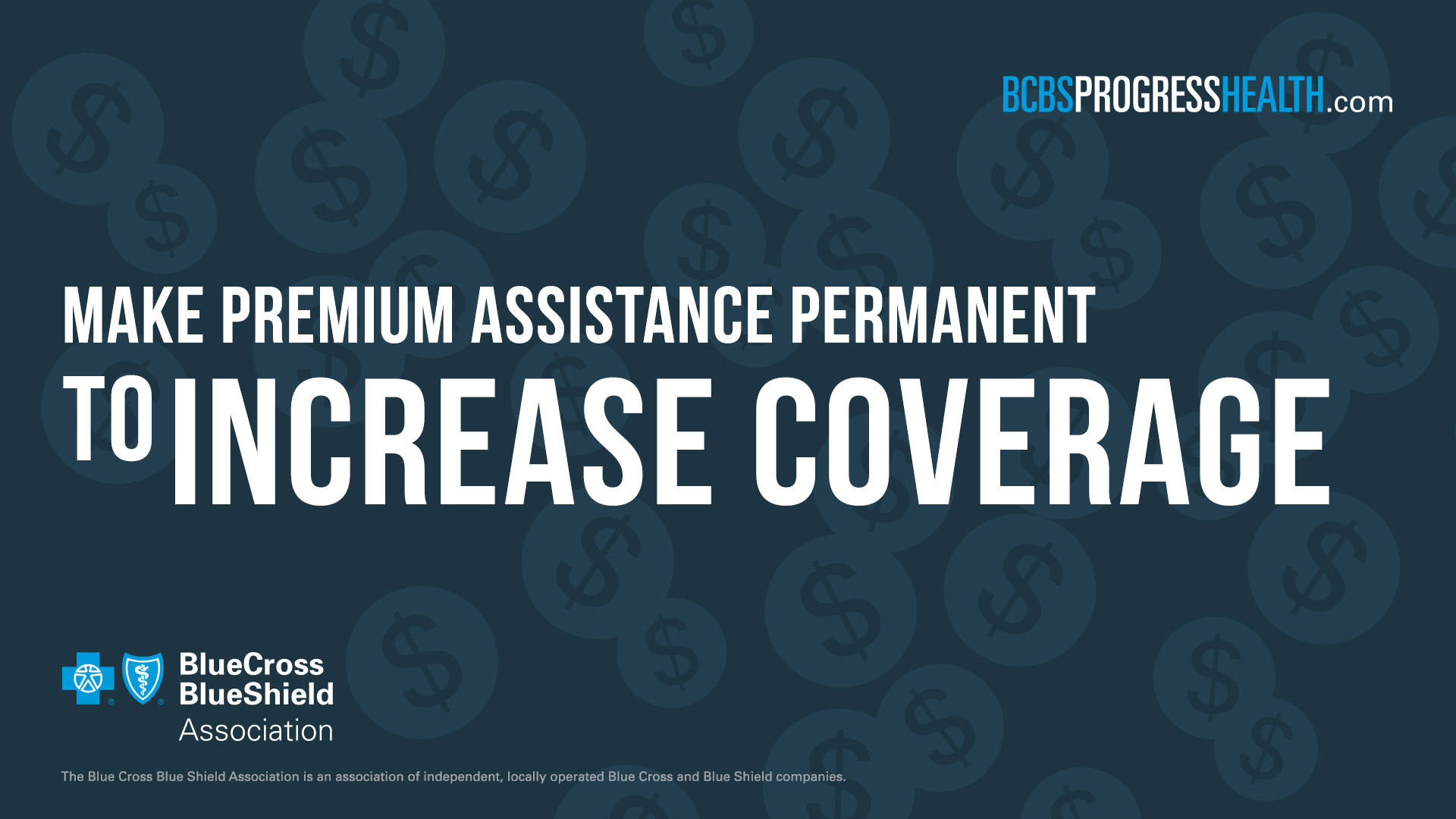| | | | | | | Presented By Blue Cross Blue Shield Association | | | | Axios Vitals | | By Tina Reed ·Jul 26, 2021 | | 🏀 Good morning, Vitals readers. Today's newsletter is 985 words, or a 4-minute read. - I'll be out the rest of the week, so Caitlin Owens will be subbing in as Vitals author.
Situational awareness: It's a busy week for health care earnings, with Q2 results expected from Universal Health Services, Centene, Teladoc, Humana, Pfizer, Community Health Systems, AstraZeneca and Cerner, to name a few. | | | | | | 1 big thing: Why vaccinated America can't ignore unvaccinated America |  | | | fIllustration: Trent Joaquin/Axios | | | | Getting more Americans vaccinated should be important to the majority of American adults who have already gotten the shot, experts say. Why it matters: Beyond the philosophical considerations, public health experts say there are direct impacts — including the risk of breakthrough cases, new variants and economic pullbacks. "The key thing that keeps getting lost is that this matters to the vaccinated," said Leana Wen, an emergency physician and public health professor at George Washington University. - Breakthrough infections are possible — and become more probable — among the vaccinated the more they interact with the unvaccinated.
- Ultimately, the more people COVID can infect, the higher the possibility of new variants that are more transmissible, deadly or eventually able to evade the defense of our vaccines.
Zoom out: With previous variants, the U.S. might've reached "herd immunity" with about 70% of the population vaccinated. - But with Delta — which is more than 1,000 times more transmissible — that bar was likely raised to 90%, Eric Topol, director and founder of the Scripps Research Translational Institute, told Axios.
- Topol pointed to Vermont as a successful model for the U.S. With about 67% of its entire population, including children, vaccinated, hospitalizations have been going down with the Delta variant.
- But in the U.S. more broadly, he said, the opposite model is happening. "Instead of how it was supposed to work, [the unvaccinated] are infecting the vaccinated," Topol said.
The bottom line: Experts agreed the U.S. current vaccination level will likely protect from a surge that would overwhelm hospitals nationwide. - But some hospitals in communities with low vaccination rates are getting overwhelmed, seeing surges outpacing those seen at the peak of the pandemic.
Go deeper. |     | | | | | | 2. Delta variant complicates return to office plans |  | | | Illustration: Megan Robinson/Axios | | | | Resurgent outbreaks — including breakthrough infections among vaccinated people — could throw a wrench in plans to bring workers more fully back to offices in September, Axios' Bryan Walsh writes. The big picture: A number of companies and the federal government have targeted the end of summer as the time to bring in-person offices fully online. But rising numbers of COVID-19 cases from the Delta variant could render that goal unrealistic. - New projections released Wednesday by the COVID-19 Scenario Modeling Hub, a consortium of researchers working in consultation with the CDC, predict that the current coronavirus surge will accelerate through the summer and fall.
- The surge is predicted to peak in mid-October, with daily deaths triple the level they are now.
Why it matters: Those projections directly clash with both school reopenings and corporate plans to staff up offices more fully in September - A recent survey of 1,000 HR professionals by the Society for Human Resource Management and Lucid found that half of U.S. organizations are worried about the more contagious Delta variant, and will encourage employees to get a booster shot when one is available.
Share this story. |     | | | | | | 3. Reality check on antibody testing | | When the GOP Doctors Caucus gathered to publicly encourage vaccines last week, the message came with a caveat: Talk to your doctor about an antibody test. For example: "If you haven't had the vaccine, or if you haven't tested positive for the virus, go to your doctor. Ask him for the antibody test," said Sen. Roger Marshall (R-Kan.), who is an OB/GYN. - "And then you and your doctor should decide the pros and cons, the risks and benefits and if you want the vaccine."
Be smart: This advice runs counter to CDC guidance. Public health experts say natural immunity certainly shouldn't be disregarded, but they wouldn't support this recommendation. "It is true that if you've had prior infection, you have some protection," said Jen Kates, KFF's senior vice president and director of global health and HIV policy. - However, current scientific evidence shows the vaccine-induced immunity consistently protects better than natural immunity in part because of how the virus learns to disrupt and evade the immune system, Vineet Menachery, a virologist at the University of Texas Medical Branch, tells Axios.
- Experts said antibody tests are useful tools, but they aren't perfect and they don't necessarily tell a person the level of antibodies they have.
- "Put it this way: For me? I wouldn't rely on that as a method of protection," Kates said.
|     | | | | | | A message from Blue Cross Blue Shield Association | | Using data to build vaccine confidence | | |  | | | | Reluctance about vaccines tends to be higher in communities of color due to a long history of inequitable health treatment. Learn how we are using Blue Cross and Blue Shield data to identify social vulnerabilities and replace hesitancy with hope. | | | | | | 4. More wealth leads to a longer life | | Americans who are wealthier at midlife tend to live longer than their less-wealthy peers — including peers who also happen to be their siblings, according to a new study published Friday in JAMA Health Forum. Between the lines: The study suggests that the association between wealth and longevity isn't an artifact of early life experiences or genetics, Axios' Caitlin Owens writes. - Even among twins, greater wealth correlated with a greater chance of survival later in life.
The big picture: The wealth gap between high-income and low-income Americans is large and growing. What they're saying: "Policies that support individuals' ability to accrue wealth and achieve financial security could have considerable health benefits," the authors conclude. - "In addition, policies to reduce the wealth gap may generate substantial returns to public health."
|     | | | | | | 5. While you were weekending |  | | | Illustration: Aïda Amer/Axios | | | - Biden officials see a booster shot among at least some vaccinated Americans as increasingly likely.
- Two-thirds of Americans believe there will be a coronavirus outbreak among the Olympic athletes, according to a new Axios/Momentive poll. Meanwhile, 6 in 10 expect the Olympics to trigger a virus outbreak among the general public.
- NIAID director Anthony Fauci told CNN's "State of the Union" Sunday that health officials are considering revising masking guidelines for vaccinated Americans.
- Latino children in the U.S. are twice as likely to be uninsured as non-Latino children, according to an analysis by the Georgetown University Center for Children and Families.
|     | | | | | | A message from Blue Cross Blue Shield Association | | Making health coverage more affordable | | |  | | | | Enhanced premium assistance that makes health care coverage more affordable will end in 2022. See how Congress can help millions of middle class families by expanding access, reducing costs and making health care more equitable for everyone. | | |  | | It'll help you deliver employee communications more effectively. | | | | | | Axios thanks our partners for supporting our newsletters. If you're interested in advertising, learn more here.
Sponsorship has no influence on editorial content. Axios, 3100 Clarendon Blvd, Suite 1300, Arlington VA 22201 | | | You received this email because you signed up for newsletters from Axios.
Change your preferences or unsubscribe here. | | | Was this email forwarded to you?
Sign up now to get Axios in your inbox. | | | | Follow Axios on social media:    | | | | | |
No comments:
Post a Comment